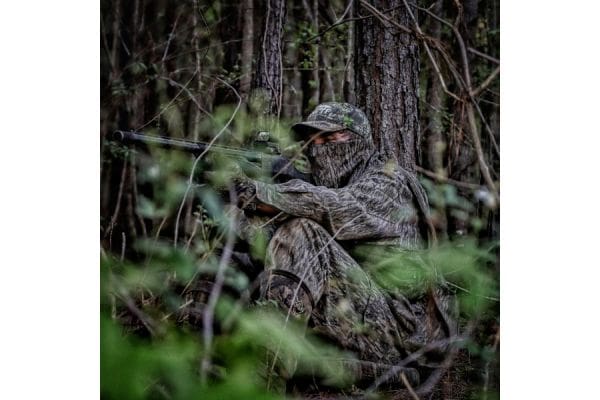Protecting Outdoor Traditions: Oregon IP3 Blocked from 2024 Ballot by United Efforts

EDGEFIELD, S.C. — The Congressional Sportsmen’s Foundation reported that as of July 5, Oregon Initiative Petition 3 (IP3), which proposed a statewide ban on hunting, fishing, trapping and ranching, officially did not qualify for the 2024 ballot.
IP 3 is the second iteration of a petition to effectively criminalize these outdoor pursuits. The National Wild Turkey Federation has been at the forefront of efforts to combat Oregon’s proposed ban on hunting, fishing, trapping and ranching since its inception. In 2021, proponents began collecting signatures for the first iteration, Initiative Petition (IP) 13, which would criminalize these essential outdoor and agricultural activities. The NWTF took an active role on the steering committee, meticulously analyzing petition language and keeping its members informed through email alerts to decline signing the petitions.
Understanding the profound impact such legislation could have, the NWTF emphasized the importance of clarifying the detrimental aspects of the petition to the public. For instance, the petition’s language ambiguously exempted “good” veterinary practices without defining “good,” suggesting some veterinary practices could be criminalized.
Chris Henry, Oregon NWTF State Chapter president, signed a detailed letter to the Secretary of State, leading to the acceptance of many NWTF-proposed changes in the petition’s wording.
In June 2021, the Oregon Attorney General’s office revised the ballot language based on comments from various organizations, including the NWTF, Oregon Hunters Association, Rocky Mountain Elk Foundation, Wild Sheep Foundation, Oregon Outdoor Council, Oregon Chapter of Backcountry Hunters and Anglers, Oregon Trappers Association, Sportsmen’s Alliance and the Congressional Sportsmen’s Foundation.
Proponents fell short in securing enough signatures in 2022. However, in March 2023, proponents refiled the initiative as Initiative Petition 3 for the 2024 ballot, intensifying efforts to criminalize hunting, fishing, trapping, and livestock practices. IP3 also controversially defined artificial insemination and breeding practices as sexual assault.
Throughout this process, the NWTF’s primary focus remained on keeping its members informed and engaged. Henry played a pivotal role in mobilizing the Oregon NWTF State Chapter and NWTF staff to disseminate crucial information at key legislative moments.
“It was important that people realized how bad IP3 was,” Henry said. “IP3 wasn’t just bad for hunters and anglers, it would have affected your ability to get local fish or meat, and even to breed a dog or buy a puppy.”
The failure of IP3 to secure enough signatures to appear on the 2024 ballot reflects the united efforts of sportsmen and women and countless farming communities. Despite this victory, the proponents are expected to introduce another petition, IP-28, for the 2026 ballot, which would again aim for a statewide ban on hunting, fishing, trapping and ranching.
“NWTF is always working behind the scenes to enact good state policies,” said Patt Dorsey, NWTF director of conservation in the West. “That work isn’t always obvious, but it’s critical for our mission and for millions of Americans who hunt and harvest wild game and fish for their tables.”
About the National Wild Turkey Federation
Since 1973, the National Wild Turkey Federation has invested over half a billion dollars into wildlife conservation and has positively impacted over 23 million acres of critical wildlife habitat. The NWTF has also invested over $9 million into wild turkey research to guide the management of the wild turkey population and to ensure sustainable populations into perpetuity. The organization continues to deliver its mission by working across boundaries on a landscape scale through its Four Shared Values: clean and abundant water, healthy forests and wildlife habitat, resilient communities, and robust recreational opportunities. With the help of its dedicated members, partners and staff, the NWTF continues its work to provide Healthy Habitats. and Healthy Harvests. for future generations.
